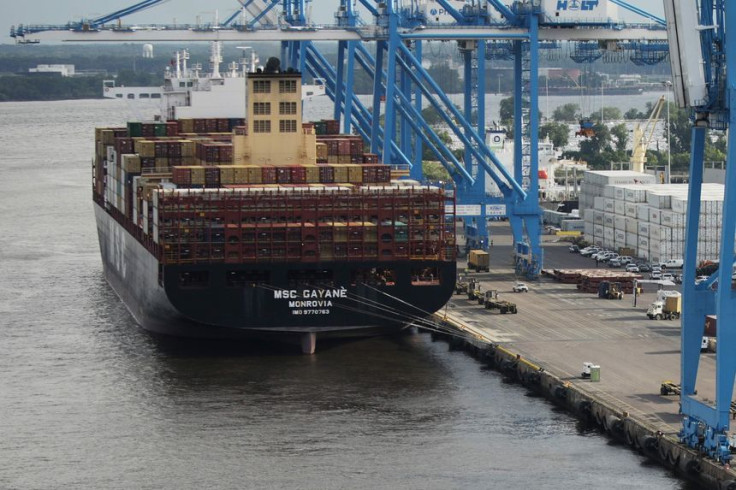Two MSC Gayane mariners will serve more than 13 years in jail in total, following attempts to smuggle 20 tons of cocaine through the Port of Philadelphia in a $1 billion haul of the drug in June 2019, one of the largest drug busts in U.S. history.
Montenegro nationals Ivan Durasevic, 31, and Nenad Ilic, 41, have been sentenced by United States District Court Judge Harvey Bartle III, on charges of conspiracy to possess with intent to distribute cocaine on a vessel subject to U.S. jurisdiction, court documents show.
Durasevic, Gayane's second mate, will serve six and a half years in prison and two years of supervised release. Meanwhile, Ilic, an engineering cadet, will be jailed for seven years followed by two years of supervised release.
The duo told a federal judge on Monday that they were approached by an anonymous representative from an affluent Balkan drug trafficking organization before boarding the MSC Gayane.
They claimed to have initially turned down the recruitment offer despite the "astronomical sums" but ultimately gave in and agreed to smuggle 20 tons of cocaine for the group, according to the Union-Bulletin .
The offenders contended that they feared for their safety and of their families if they upset the men. According to Durasevic's attorney, Mythri A. Jayaraman, the men were "coerced" into carrying out the illegal activity and not simply recruited.
Durasevic was offered $200,000 for the scheme. He had reportedly tried to dispose of the phone the traffickers used to contact him during the journey overboard the ship but the illegal merchants managed to keep him in tow through other members of the crew, Jayaraman noted.
However, Prosecutors rejected the idea that Durasevic and Ilic were powerless to resist the coercion, noting that Durasevic was the ship's third-ranking officer. They said the 31-year-old was tasked to ensure the Gayane, carrying the illicit cargo, will go undetected from port to port.
Court documents also revealed that Durasevic and Ilic had operated mobile “narco” phones to communicate the bulk cocaine smuggling with their associates on land.
The men were also ultimately involved in recruiting more crew members while at sea to perform manual labor of hauling the drugs aboard and hiding them in shipping containers, which appeared to be storing wine, vegetable extract, Chilean dried nuts, scrap metal, and other legitimate goods. The contraband would then be shipped to Europe, Africa, and Asia.
Federal authorities raided the MSC Gayane container ship at the Packer Avenue Marine Terminal in South Philadelphia on June 18, 2019, according to the Philadelphia Inquirer. They then intercepted about 20 tons of cocaine worth over $1 billion from its shipping containers.
Five other crew members from the MSC Gayane involved in the scheme were arrested and have since pleaded guilty to conspiracy to possess with intent to distribute cocaine. They include Montenegro's Bosko Markovic, 39, the ship’s chief officer, and Vladimir Penda, 27, the fourth engineer; Serbian national Stefan Bojevic, 29, the assistant reefer man; and Samoan natives Fonofaavae Tiasaga, 29, an able seaman; and Laauli Pulu, 34, an ordinary seaman.
A sixth crew member, Aleksandar Kavaja, 27, the electrician, is awaiting sentencing following a guilty plea.
“As the sentences for the illegal conduct, in this case, continue to happen, they serve as a reminder that drug smuggling operations will be uncovered one way or another,” Acting U.S. Attorney Williams said in a statement.
Williams has vowed to pursue the case until it is closed, noting that their prosecutors have been working tirelessly to attain justice since the MSC Gayane berthed in Philadelphia port over two years ago.
The matter is being probed by Homeland Security Investigations and the United States Customs and Border Protection, with the assistance of their federal, state, and local counterparts.

© 2025 Latin Times. All rights reserved. Do not reproduce without permission.





